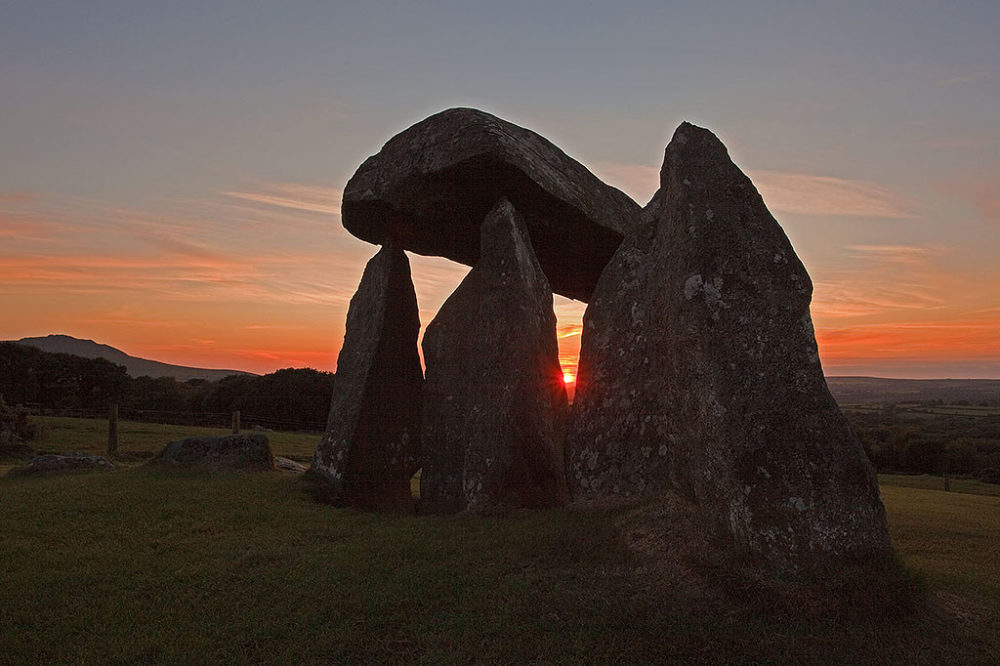Winter solstice and shortest day takes place this Friday

Stephen Price
The winter solstice (heuldro’r gaeaf in Welsh), the period in which we will see the fewest daylight hours of the year, takes place this year on Friday 22 December at 3.27am.
In the Northern Hemisphere, the solstice marks the 24-hour period with the fewest daylight hours of the year, with some referring to it as the shortest day of the year, or the longest night of the year.
The solstice also marks the point at which the sun is exactly overhead the Tropic of Capricorn
Sun at its lowest point in the sky
The winter solstice occurs when the Sun is lowest in the sky, the actual moment in 2023 being at 3:27am GMT for us in Wales, but most people concentrate on the whole solstice day (either 21 or 22 Dec).
The earth rotates on a tilted axis. When this axis leans towards the sun, it’s summer in the northern hemisphere and winter in the south. This is reversed as the earth continues on its orbit until the axis becomes tilted away from the sun.
During the solstice, the earth’s axis is tilted at its furthest point from the sun. This means that, for us, the sun is at its lowest point in the sky. It’s also the shortest day of the year – and the longest night.
The shortest day is set to last 7 hours 49 minutes and 42 seconds in Wales, with the day’s length during the winter solstice an incredible 8 hours, 49 minutes shorter than the daylight hours of the summer solstice.
People across the world celebrate the winter solstice as the beginning of winter or Yule, with a popular gathering set to take place at Stonehenge – with many meeting tonight in advance of sunrise, when glimpses of the sun will illuminate the ancient stones through pin-point-accurate frames left by our ancestors.
Here in Wales, many prefer a visit to their own favourite haunts, often standing stones, such as Pentre Ifan (pictured above).
Yule
Yule, which is the 12 day festival centred around the solstice, has gifted us with a whole host of familiar Christmas traditions including the Yule log, the Christmas tree and the Christmas wreath.
According to the Met Office: “Logically you’d expect the earliest sunset to fall on the shortest day, but the earliest sunset actually occurs a few days earlier in the calendar and it’s all to do with our clocks not quite mirroring the Earth’s orbit.
“True solar noon, the point at which the sun reaches its highest point in the sky, occurs around 10 minutes earlier than when our clocks strike 1200, and it is this discrepancy that means the sunset also arrives a little later on the solstice.”
For now, however, the nights will appear dark and cold for a while longer, but with up to three minutes of light added each day, it’s definitely a cause for celebration.
Support our Nation today
For the price of a cup of coffee a month you can help us create an independent, not-for-profit, national news service for the people of Wales, by the people of Wales.







“The winter solstice (heuldro’r gaef in Welsh)…….. with nights set to draw out soon after.”
In, I think, not out.
There’s a reason why Christmas and the Roman festival of Saturnalia were placed at this time of the year and that’s because the days start to lengthen from this point. (Apologies to all the Christians and even Romans out there!). Past the festivals, ie January, is often a depressing time for many but really it shouldn’t be, spring, with it’s warmer and longer days is on it’s way, we’ve turned a corner in the long dark months, which were particularly cold and dark for our ancestors.
Your top header gets it wrong. After Saturday the days increase in length until the Summer Solstice.